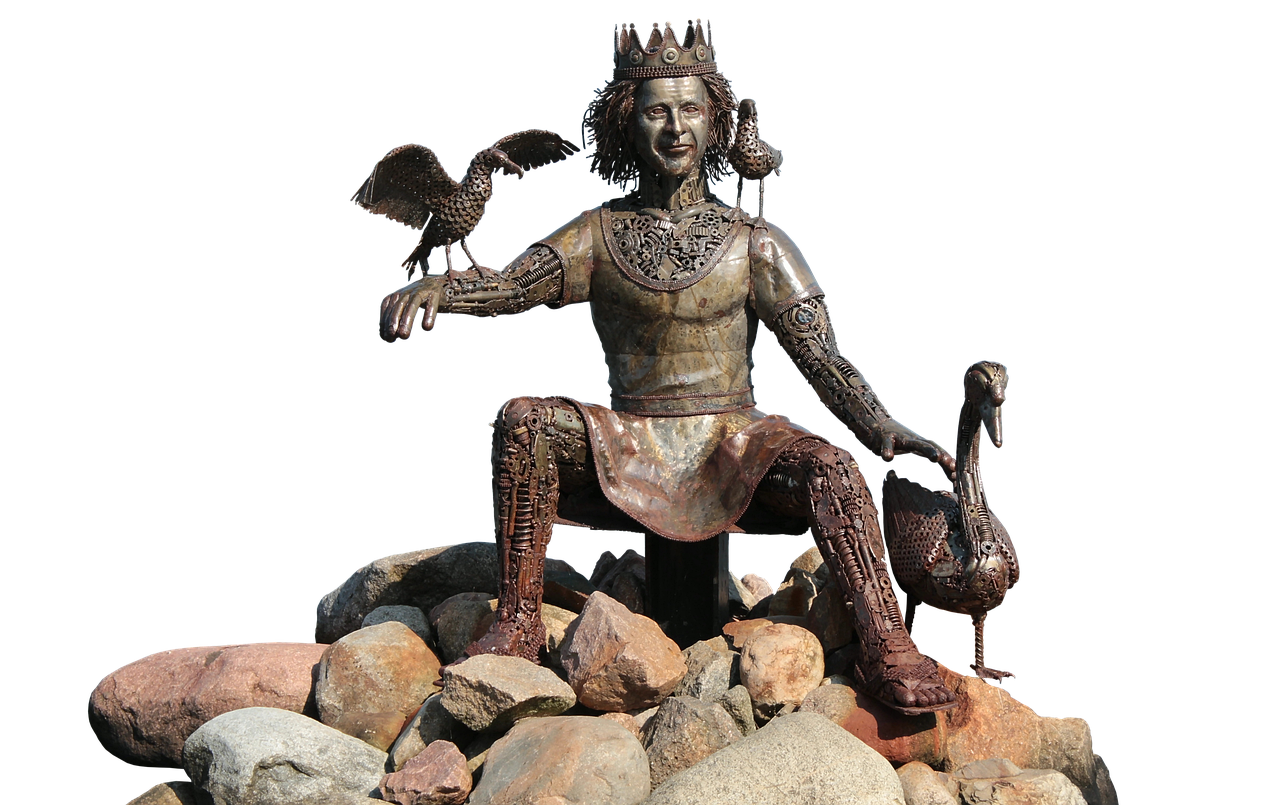Tyr and Fenrir: An In-Depth Examination
Tyr: A Complex Figure in Norse Mythology
Tyr, often pronounced like “tier,” stands out as a prominent deity within Norse mythology, embodying both the spirit of warfare and the principles of law and justice. His influence, particularly during the Viking Age, may appear limited in the surviving myths. However, a closer investigation reveals that Tyr once held a significant position among the deities revered by the Norse and other Germanic cultures.
Martial Valor and Legal Integrity
As a pivotal war god alongside figures like Odin and Thor, Tyr’s military prowess is well-documented in historical texts dating back to the Viking Age. The poem Sigrdrífumál from the Poetic Edda highlights this aspect, emphasizing the importance of invoking Tyr for triumph in battle. In another poem, Lokasenna, a dialogue featuring Loki critiques Tyr, suggesting he incites conflict rather than placing value on resolution.
Historically remarked upon by the Romans, who equated Tyr with their own war god Mars, this parallel underscores Tyr’s significance to the warrior class. This influence is echoed today in the English term “Tuesday,” originating from the Old English “Tiwesdæg,” or “day of Tiw,” correlating to Mars’ Day.
Despite his martial reputation, Tyr is primarily characterized as a champion of law and fairness. Roman tributes referred to him as Mars Thincsus, tying him to the ancient assembly of tribes where laws were spoken. The narrative of The Binding of Fenrir notably illustrates Tyr’s dual role and highlights his valor: as the gods sought to bind the monstrous wolf Fenrir, only Tyr dared to sacrifice his arm as a sign of trust. This act not only saved the gods but legitimized their actions, transforming what could have been perceived as treachery into a just cause.
The Interconnection of War and Law
This raises questions regarding the coexistence of Tyr’s dual roles as a deity of law and a warrior god. For the ancient Germanic peoples, the realms of law and warfare were intimately linked. In their worldview, warfare was progressively governed by law, with battles often prescheduled and held to specific stipulations. The concept of legal duels also reflected how disputes could be settled through defined combat, wherein divine endorsement rested upon the party adhering to right.
The distinct qualities of Norse war deities are revealing: each embodies a unique facet of combat. Thor represents raw physical strength, Odin embodies the mystical elements of warfare, while Tyr delineates the legal frameworks governing conflict.
Historical Predecessors
Long before the emergence of the Germanic tribes, they worshipped *Dyeus, a precursor to Tyr as the natural evolution of their religious practices. The roots of the name *Dyeus signify “day” and “sky,” imbuing him with qualities associated with divinity and authority. This early deity closely resembles Tyr in several aspects, including the adjudication of justice and the sanctity of oaths.
Although direct correlations between Tyr and the daytime sky are sparse, the shape of the rune T, named after Tyr, merits consideration. Its arrow-like structure suggests combativeness, yet its upward orientation hints at a connection to a celestial role akin to that of *Dyeus.
In conclusion, Tyr’s legacy, while not prominently featured in surviving Viking Age narratives, reflects the historical importance he once held amongst his worshipers. The complex interplay of his roles as a god of legal proceedings and warfare underlines the rich tapestry of Norse mythology and invites further exploration into its profound themes.



